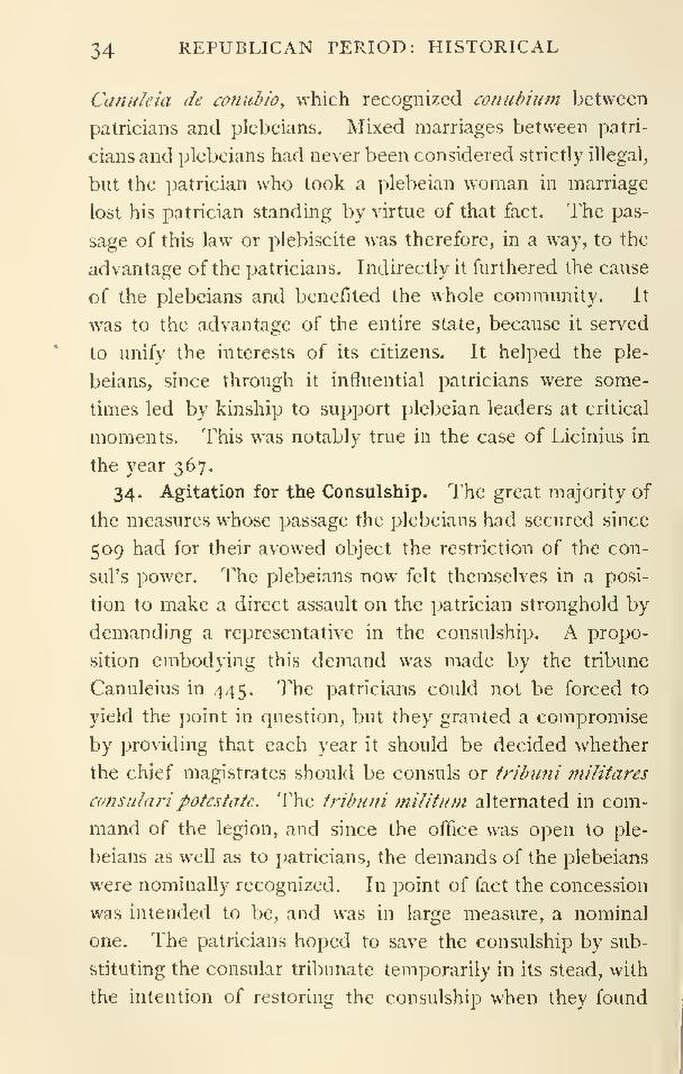Canuleia de tonubio, which recognized conubium between patricians and plebeians. Mixed marriages between patricians and plebeians had never been considered strictly illegal, but the patrician who took a plebeian woman in marriage lost his patrician standing by virtue of that fact. The passage of this law or plebiscite was therefore, in a way, to the advantage of the patricians. Indirectly it furthered the cause of the plebeians and benefited the whole community. It was to the advantage of the entire state, because it served to unify the interests of its citizens. It helped the plebeians, since through it influential patricians were sometimes led by kinship to support plebeian leaders at critical moments. This was notably true in the case of Licinius in the year 367.
34. Agitation for the Consulship. The great majority of the measures whose passage the plebeians had secured since 509 had for their avowed object the restriction of the consul's power. The plebeians now felt themselves in a position to make a direct assault on the patrician stronghold by demanding a representative in the consulship. A proposition embodying this demand was made by the tribune Canuleius in 445. The patricians could not be forced to yield the point in question, but they granted a compromise by providing that each year it should be decided whether the chief magistrates should be consuls or tribuni militares consulari potestate. The tribuni militum alternated in command of the legion, and since the office was open to plebeians as well as to patricians, the demands of the plebeians were nominally recognized. In point of fact the concession was intended to be, and was in large measure, a nominal one. The patricians hoped to save the consulship by substituting the consular tribunate temporarily in its stead, with the intention of restoring the consulship when they found
